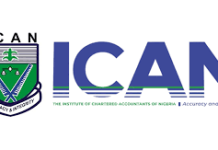The persisting effect of COVID-19 on the fiscal operations of the Federal Government has led to a huge deficit in October 2020.
The Central Bank of Nigeria’s monthly economic report stated that the estimated deficit amounted to N451.22 billion, rising by 8.8 percent above the budget benchmark of N414.63 billion.
According to the CBN, on a month-month basis, the fiscal deficit rose by 7.8 per cent above the September 2020 deficit of N418.50 billion.
The apex bank said aggregate expenditure climbed to N725.7bn in October from N712.3bn in the preceding period, due to a rise in personnel costs and capital releases.
The report stated, “At N616.35bn, gross federally collected revenue in October 2020 was below the budget benchmark by 27.2 per cent.
“It declined by 18.3 per cent and 33 per cent when compared with the level in the preceding month and the corresponding period of 2019 respectively.
“This was attributed to declines in both oil and non-oil revenue components.”
The CBN stated that the revenue profile of the FGN revealed a lingering challenge due to declines in statutory receipts and persistent shortfalls in government’s independent revenue.
“Federal Government retained revenue was N274.48bn in October 2020, indicating a drop of 6.6 per cent and 52.8 per cent relative to the levels in the preceding month and corresponding period of 2019,” the report said.
READ ALSO: Nigeria’s External Reserves To Hit 42 billion in 2021
According to the apex bank, releases to MDAs in respect of personnel cost and capital expenditure, were the major drivers of government expenditure in October 2020.
The report stated, “Driven by the rise in personnel costs and capital releases, provisional aggregate expenditure rose to N725.7bn from N712.3bn in the preceding period.
“Consequently, estimated fiscal deficit in October widened to N451.22bn, from N418.5bn in September 2020.”
According to the report, the total Federal Government’s debt outstanding as of end of June 2020 was N31.01tn; with domestic and external debt components accounting for 57.6 per cent and 42.4 per cent of the total debt stock respectively.













